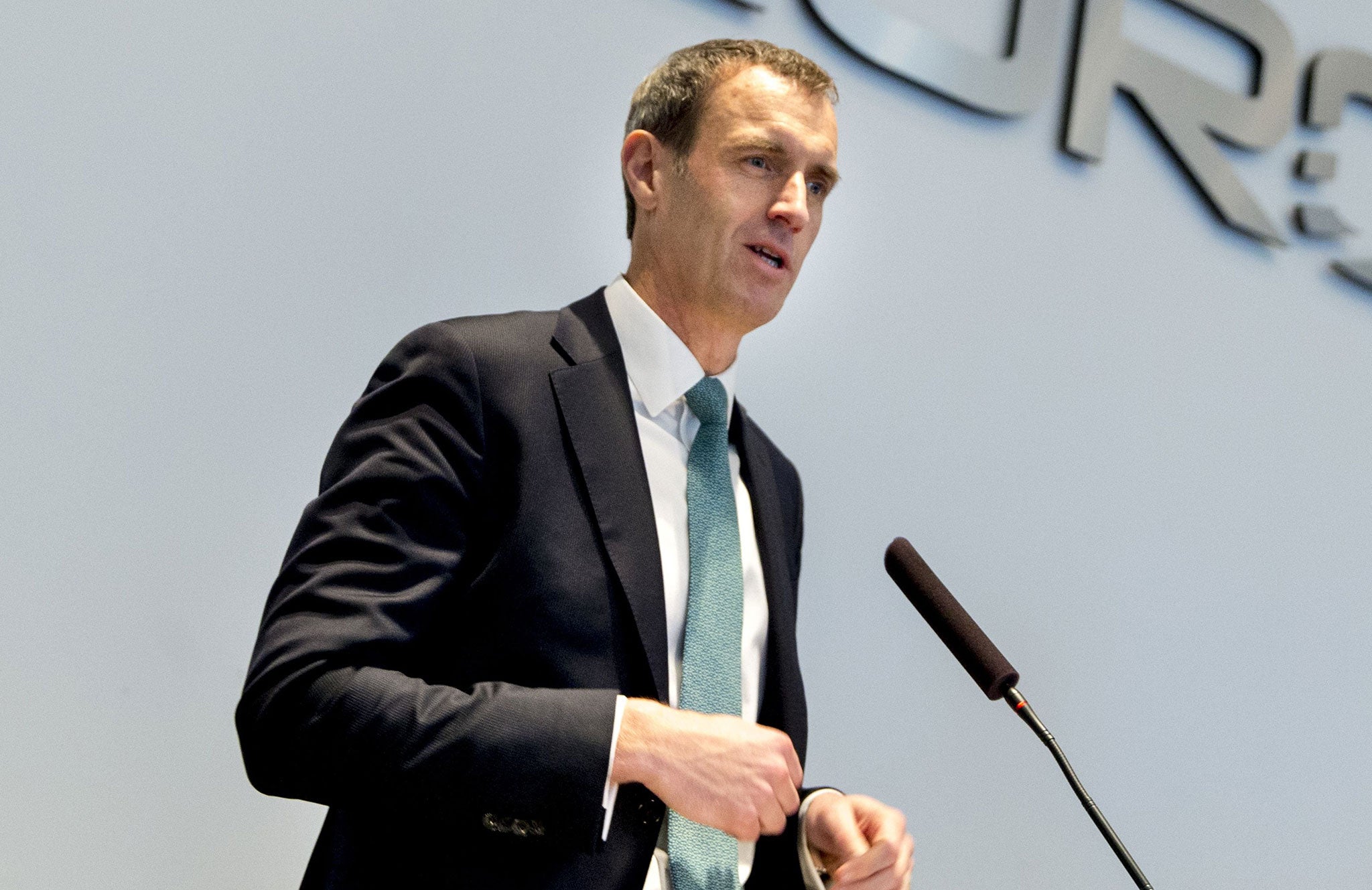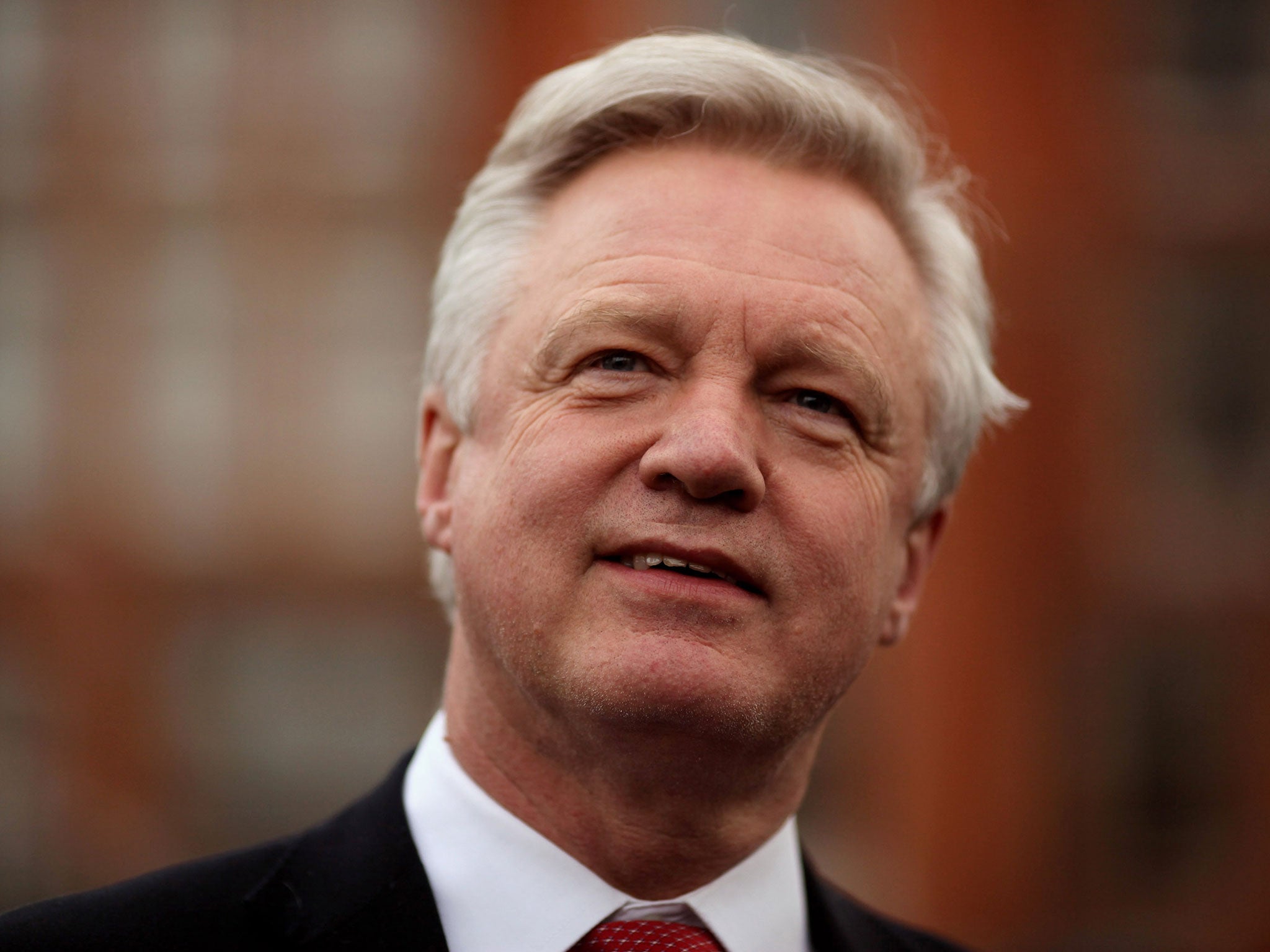Britain could lose access to vital crime and terrorism databases if it leaves the EU, bloc's top police officer says
Rob Wainwright, the director of Europol, said the cooperation helped Britain police its borders

Your support helps us to tell the story
From reproductive rights to climate change to Big Tech, The Independent is on the ground when the story is developing. Whether it's investigating the financials of Elon Musk's pro-Trump PAC or producing our latest documentary, 'The A Word', which shines a light on the American women fighting for reproductive rights, we know how important it is to parse out the facts from the messaging.
At such a critical moment in US history, we need reporters on the ground. Your donation allows us to keep sending journalists to speak to both sides of the story.
The Independent is trusted by Americans across the entire political spectrum. And unlike many other quality news outlets, we choose not to lock Americans out of our reporting and analysis with paywalls. We believe quality journalism should be available to everyone, paid for by those who can afford it.
Your support makes all the difference.Britain could lose access to vital databases of terror and criminal suspects needed to fight Isis if it left the European Union, the bloc’s top police officer has said.
Rob Wainwright, the director of the EU’s police agency Europol, said databases provided “daily” benefit to UK police in protecting borders and that leaving the EU would put intelligence cooperation in danger.
Mr Wainwright’s intervention comes after Sir Richard Dearlove, a former head of MI6, wrote an article suggesting that leaving the bloc would be unlikely to affect intelligence gathering.
“Britain is Europe’s leader in intelligence and security matters and gives much more than it gets in return. It is difficult to imagine any of the other EU members ending the relationships they already enjoy with the UK,” the former head of the Secret Intelligence Service wrote in a piece for Prospect magazine.
Mr Wainwright however suggested that Sir Richard’s views were outdated because the situation had evolved since he retired a decade ago.
“I’ve seen huge progress in the EU in building up our far stronger capability to fight terrorism and serious crime,” he told BBC Radio 4’s Today programme.
“I see the benefits of that for British police authorities every day – the European Arrest Warrant being used to fast-track a thousand serious offenders off the streets of Britain every year; border officials in Britain having access to a unique database of 300,000 wanted criminal suspects and missing people as they enter borders.

“These are all unique instruments providing daily operational benefit to help British authorities protect their borders and protect their citizens.
“The idea that somehow we’d be safer by removing or diminishing our access to what are dozens of unique databases and police cooperation instruments that Britain has come to rely on in recent years is a serious miscalculation. It just doesn’t stand scrutiny.”
Mr Wainright’s defence of the EU's contribution to policing was criticised on the same programme by former shadow home secretary David Davis.
Mr Davis, a long-time eurosceptic, said that pulling out of European Union freedom of movement agreements would be a boon for the UK’s security.
“We do not do our primary intelligence cooperation through the European Union, we do it through deals with our partners – most particularly France and Germany on the continent,” he argued.

“What we’re doing is given ourselves back one of the most important weapons for dealing with terrorism – the ability to stop people at the border, check people at the border, and deport people we don’t want to keep- something we can’t do at the moment.
“Many of these killers – there’s no other word for them – are actually European Union citizens. Which means that even though we’re not a member of Schengen we can’t stop them from coming to Britain.”
In fact, EU freedom of movement rules do explicitly allow member states to bar individuals “on grounds of public policy, public security or public health”, according to article 45 of the Treaty on the Functioning of the European Union.
As a member of the EU Britain gives freedom of movement to all EU citizens – they must however pass through border controls and show passports, because Britain is not a member of the Schengen passport-free area.
The exact arrangement Britain would face if it left the EU has not been decided. Some eurosceptics want Britain to retain access to the single market, which would likely entail freedom of movement continuing. Others propose full withdrawal.
Join our commenting forum
Join thought-provoking conversations, follow other Independent readers and see their replies
Comments